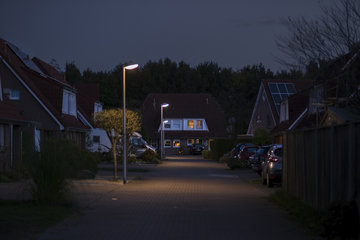“Emphasize social and joint culture”
Lisa Suckert of the Max Planck Institute for the Study of Societies argues for a more differentiated perception of the Brexit campaign and the economic identity of Great Britain.
Lisa Suckert of the Max Planck Institute for the Study of Societies argues for a more differentiated perception of the Brexit campaign and the economic identity of Great Britain. But Suckert argues that the EU also has a role to play in this: it must change in order to better understand the needs of those in favour of leaving the EU, to take countermeasures and to strengthen European cohesion.

“Emphasize social and joint culture”
Lisa Suckert from the Max Planck Institute for the Study of Societies is advocating a more differentiated perception of the Brexit campaign and the UK’s economic identity. But the EU must also make an effort: It must change so that the needs of Leave supporters are better understood in the EU, in order to counteract them, and to strengthen cohesion in Europe.
Ms. Suckert, tomorrow the British Parliament will vote on the Leave deal which Prime Minister Theresa May negotiated with the EU. What are you expecting?
If there’s one thing that we've learnt during this entire process, it's that we should be careful with predictions. I wouldn’t be too surprised if the Commons were to vote against May’s suggestion. But whatever happens, the country is at odds.
After a small majority of Brits voted in favour of Brexit in 2016, what bothered you most about the reactions of the other EU members?
Nothing “bothered” me as such. But I found it disturbing how quickly many tried to pigeonhole anyone who voted in favour of leaving the EU. They were called “nationalists”, “simple racists”, and “of the old school”, they were supposed to have lost all understanding of economic connections and were supposedly afraid of anything foreign. Of course immigration was one of the key topics, and some parts of the Leave campaign were definitely xenophobic. But to claim that it was all radical is a simplified interpretation. We need to take a closer look.
In what respect?

Brexit supporters are a politically broad range of people, from the Far Right to the Far Left, who are criticising the EU from very different perspectives. For some, the European Union is a neoliberal enemy, which is too business-friendly and is concerned only with free markets. For others, the EU intervenes in the economy too much, and they want to leave the EU to finally have genuinely free markets and become even more globalized.
Some Brexit supporters want to limit migration and return to greater national sovereignty. Other parts of the movement believe that the EU treats refugees badly and inhumanely. Once out of the EU, they could do better and properly work together at an international level. So these are strongly contradictory opinions, which cannot be reconciled rationally.
What role can the EU play in this?
It could contribute towards a solution if it were to change. More and more people in many member states are unhappy with the EU. In its attempts to create a union, the EU has for too long focused exclusively on the economy and the free market.
That has not been very convincing so far. At least not as far as European integration is concerned. Perhaps the EU should take a step back as far as economic integration is concerned and focus more strongly on social standards and European culture as a joint endeavour. And it might also be worth taking a closer look at what encouraged Brexit supporters to reach their opinions, so that we can learn from that.
And what do Brexit supporters want in principle?
For many, and probably not just for Brits, the present is highly complex. People have the impression that they no longer have any decision-making power over their own lives, that there are no alternatives for their future. The desire for greater sovereignty, to regain control, have clear borders: all that was very dominant in the campaign. This is about yearning for a time and a world that is viewed as supposedly safe and happy. For many, this was during the heyday of the British Empire and later the Commonwealth. This past is used as inspiration.
But surely that’s only a dream?
That’s quite likely. But we must also keep in mind that in 2016, many cast their vote without considering the consequences of leaving in great detail. Around 70 percent of those who voted in favour of Brexit were of the opinion that the result of the referendum would not make any great difference. That nothing much would change in any case. In the case of a hard Brexit, this is likely to have been an economic misjudgement.
To be cynical: No matter what mess we are in now, the Brexit Leave campaign was very good.
One thing that the campaign did very well was the way in which it invoked British traditions. As we said, this wasn’t about purely nationalistic interests. It was about an economic identity, about the question of what kind of economic nation a state wants to be. For example, many Germans are very proud that Germany is the world's biggest exporter, even though that's also an identity based primarily on ideals. Rationally, there are a lot of arguments against this kind of trade surplus.
Even today, Brits like to see themselves as a global trading power, a proud nation, which is open, worldly, at home on all seas and continents, but holding the reigns. Being tied into the structures of the EU makes many Britons feel very small, insignificant.
After all, it’s not the first time that Brits have cast off their European shackles. In 1534, Henry VIII, King of England, broke with Pope Clement VII to found the Anglican Church…
…and in 1975, there was a referendum on whether to leave the European Economic Community. At the time, two thirds of all Britons voted to remain.
What were the arguments used in 1975?
They were very similar to those used today. Great Britain dreamt of returning to being a global power. Some Brits wanted to revive the Commonwealth and remain independent. By contrast, EU supporters wanted to actively influence the future project of Europe. The mood overall was more optimistic. Both sides asked how it might be possible to create a better future within or outside the EU. In 2016, both the Leave and the Remain campaigns were about how to prevent risks and dangers.
So the ideas of the future were different then compared to today?
Not really in terms of their content. But there was a different underlying mood. In contrast to the current referendum, the future was presented as open, ready to be shaped.
Promises of a better future encourage us to educate ourselves, to start a company or a family. Ideas about the future also play a role when research associations develop new technologies, or when people show commitment in political parties or trade unions. For a society, it is key how its members envisage their future. If the future is no longer viewed as open and shapeable, a lot of things will simply stop.
What would a better future for Brits look like?
That's difficult to say; at the moment, the situation is muddled. The country is deeply split in relation to this question. In the long term, Brits must find a way to reconcile these two contradictory needs, meaning the desire to participate in globalization while maintaining a certain level of seclusion and control over their own economic area.
Many thanks for this interview!
The interview was held by Martin Roos













